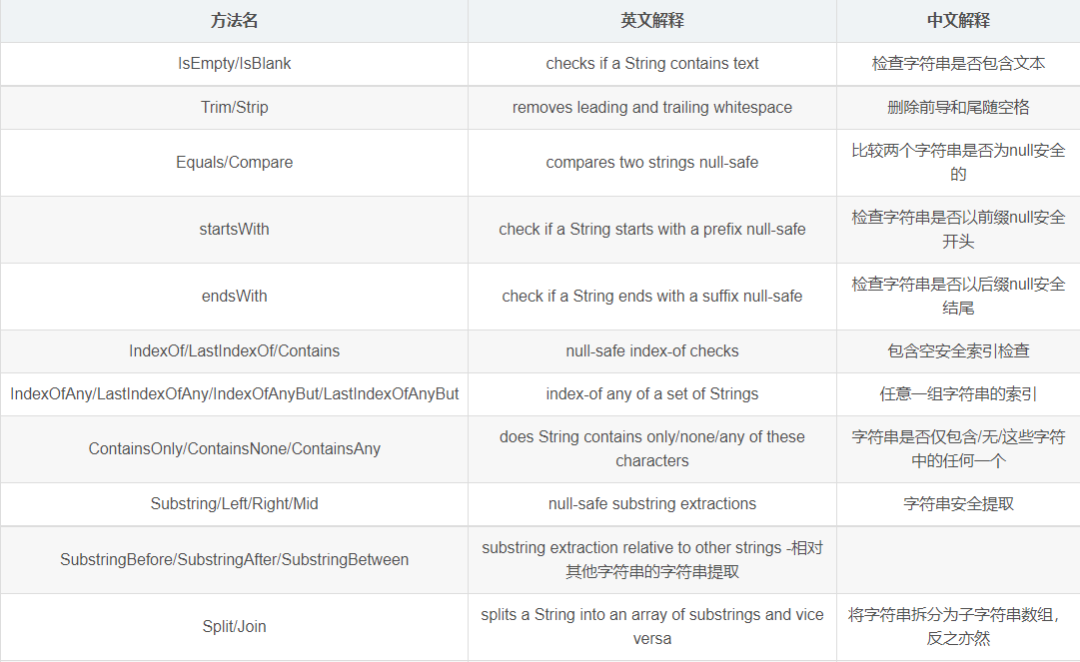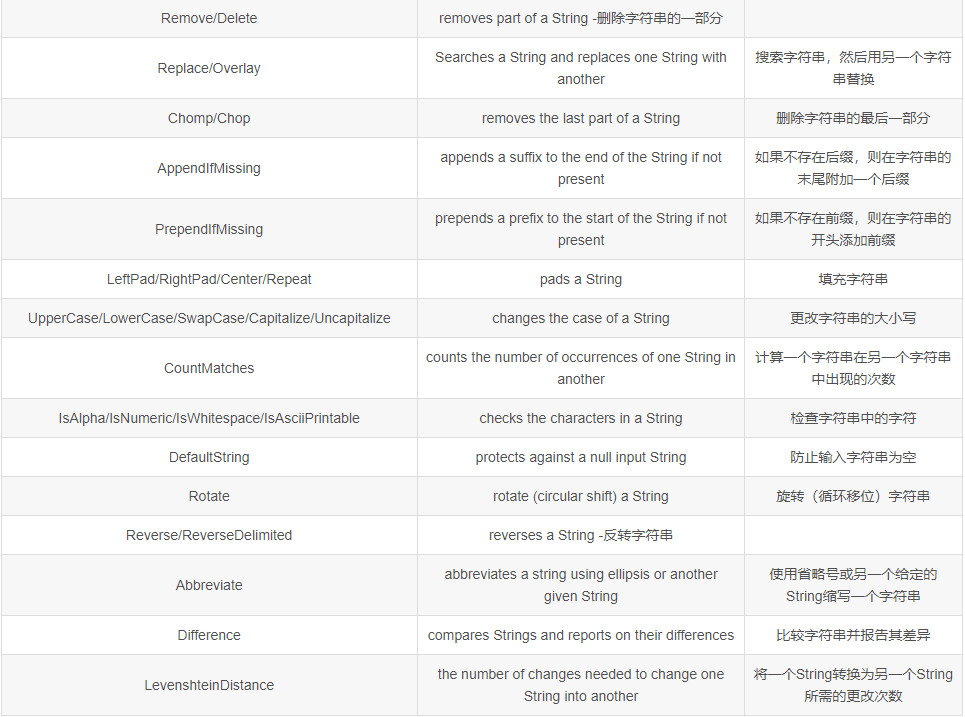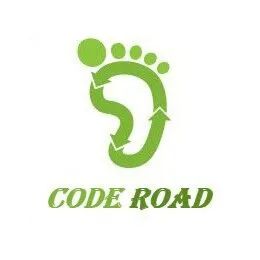isEmpty 和 isBlank 的用法区别,你都知道吗?
阅读本文大概需要 4 分钟。
isEmpty/isNotEmpty/isNotBlank/isBlank外,并不知道还有isAnyEmpty/isNoneEmpty/isAnyBlank/isNoneBlank的存在, come on ,让我们一起来探索org.apache.commons.lang3.StringUtils;这个工具类.isEmpty系列
StringUtils.isEmpty()
isEmpty(" ")=falseStringUtils.isEmpty(null) = true
StringUtils.isEmpty("") = true
StringUtils.isEmpty(" ") = false
StringUtils.isEmpty(“bob”) = false
StringUtils.isEmpty(" bob ") = false
/**
*
* <p>NOTE: This method changed in Lang version 2.0.
* It no longer trims the CharSequence.
* That functionality is available in isBlank().</p>
*
* @param cs the CharSequence to check, may be null
* @return {@code true} if the CharSequence is empty or null
* @since 3.0 Changed signature from isEmpty(String) to isEmpty(CharSequence)
*/
public static boolean isEmpty(final CharSequence cs) {
return cs == null || cs.length() == 0;
}
StringUtils.isNotEmpty()
= !isEmpty()public static boolean isNotEmpty(final CharSequence cs) {
return !isEmpty(cs);
}
StringUtils.isAnyEmpty()
StringUtils.isAnyEmpty(null) = true
StringUtils.isAnyEmpty(null, “foo”) = true
StringUtils.isAnyEmpty("", “bar”) = true
StringUtils.isAnyEmpty(“bob”, “”) = true
StringUtils.isAnyEmpty(" bob ", null) = true
StringUtils.isAnyEmpty(" ", “bar”) = false
StringUtils.isAnyEmpty(“foo”, “bar”) = false
/**
* @param css the CharSequences to check, may be null or empty
* @return {@code true} if any of the CharSequences are empty or null
* @since 3.2
*/
public static boolean isAnyEmpty(final CharSequence... css) {
if (ArrayUtils.isEmpty(css)) {
return true;
}
for (final CharSequence cs : css){
if (isEmpty(cs)) {
return true;
}
}
return false;
}
StringUtils.isNoneEmpty()
!isAnyEmpty(css) , 必须所有的值都不为空才返回true/**
* <p>Checks if none of the CharSequences are empty ("") or null.</p>
*
* <pre>
* StringUtils.isNoneEmpty(null) = false
* StringUtils.isNoneEmpty(null, "foo") = false
* StringUtils.isNoneEmpty("", "bar") = false
* StringUtils.isNoneEmpty("bob", "") = false
* StringUtils.isNoneEmpty(" bob ", null) = false
* StringUtils.isNoneEmpty(" ", "bar") = true
* StringUtils.isNoneEmpty("foo", "bar") = true
* </pre>
*
* @param css the CharSequences to check, may be null or empty
* @return {@code true} if none of the CharSequences are empty or null
* @since 3.2
*/
public static boolean isNoneEmpty(final CharSequence... css) {
isBank系列
StringUtils.isBlank()
StringUtils.isBlank(null) = true
StringUtils.isBlank("") = true
StringUtils.isBlank(" ") = true
StringUtils.isBlank(“bob”) = false
StringUtils.isBlank(" bob ") = false
/**
* <p>Checks if a CharSequence is whitespace, empty ("") or null.</p>
* @param cs the CharSequence to check, may be null
* @return {@code true} if the CharSequence is null, empty or whitespace
* @since 2.0
* @since 3.0 Changed signature from isBlank(String) to isBlank(CharSequence)
*/
public static boolean isBlank(final CharSequence cs) {
int strLen;
if (cs == null || (strLen = cs.length()) == 0) {
return true;
}
for (int i = 0; i < strLen; i++) {
if (Character.isWhitespace(cs.charAt(i)) == false) {
return false;
}
}
return true;
}
StringUtils.isNotBlank()
!isBlank();public static boolean isNotBlank(final CharSequence cs) {
return !isBlank(cs);
}
StringUtils.isAnyBlank()
StringUtils.isAnyBlank(null) = true
StringUtils.isAnyBlank(null, “foo”) = true
StringUtils.isAnyBlank(null, null) = true
StringUtils.isAnyBlank("", “bar”) = true
StringUtils.isAnyBlank(“bob”, “”) = true
StringUtils.isAnyBlank(" bob ", null) = true
StringUtils.isAnyBlank(" ", “bar”) = true
StringUtils.isAnyBlank(“foo”, “bar”) = false
/**
* <p>Checks if any one of the CharSequences are blank ("") or null and not whitespace only..</p>
* @param css the CharSequences to check, may be null or empty
* @return {@code true} if any of the CharSequences are blank or null or whitespace only
* @since 3.2
*/
public static boolean isAnyBlank(final CharSequence... css) {
if (ArrayUtils.isEmpty(css)) {
return true;
}
for (final CharSequence cs : css){
if (isBlank(cs)) {
return true;
}
}
return false;
}
StringUtils.isNoneBlank()
StringUtils.isNoneBlank(null) = false
StringUtils.isNoneBlank(null, “foo”) = false
StringUtils.isNoneBlank(null, null) = false
StringUtils.isNoneBlank("", “bar”) = false
StringUtils.isNoneBlank(“bob”, “”) = false
StringUtils.isNoneBlank(" bob ", null) = false
StringUtils.isNoneBlank(" ", “bar”) = false
StringUtils.isNoneBlank(“foo”, “bar”) = true
/**
* <p>Checks if none of the CharSequences are blank ("") or null and whitespace only..</p>
* @param css the CharSequences to check, may be null or empty
* @return {@code true} if none of the CharSequences are blank or null or whitespace only
* @since 3.2
*/
public static boolean isNoneBlank(final CharSequence... css) {
return !isAnyBlank(css);
}
StringUtils的其他方法
https://commons.apache.org/proper/commons-lang/apidocs/org/apache/commons/lang3/StringUtils.html


推荐阅读:
Spring Data JPA 与 MyBatis 对比,你喜欢用哪个?
最近面试BAT,整理一份面试资料《Java面试BATJ通关手册》,覆盖了Java核心技术、JVM、Java并发、SSM、微服务、数据库、数据结构等等。
朕已阅 
评论

